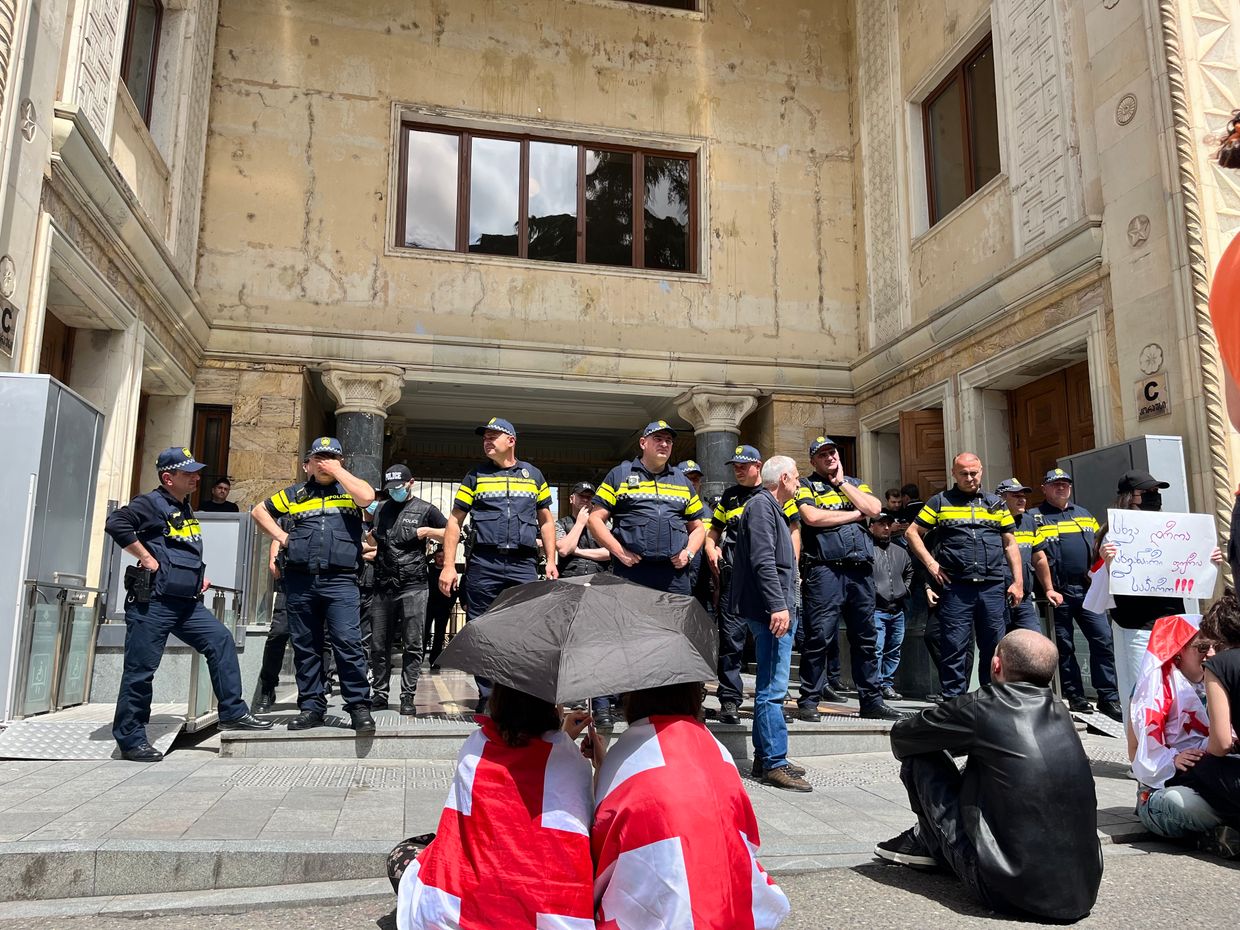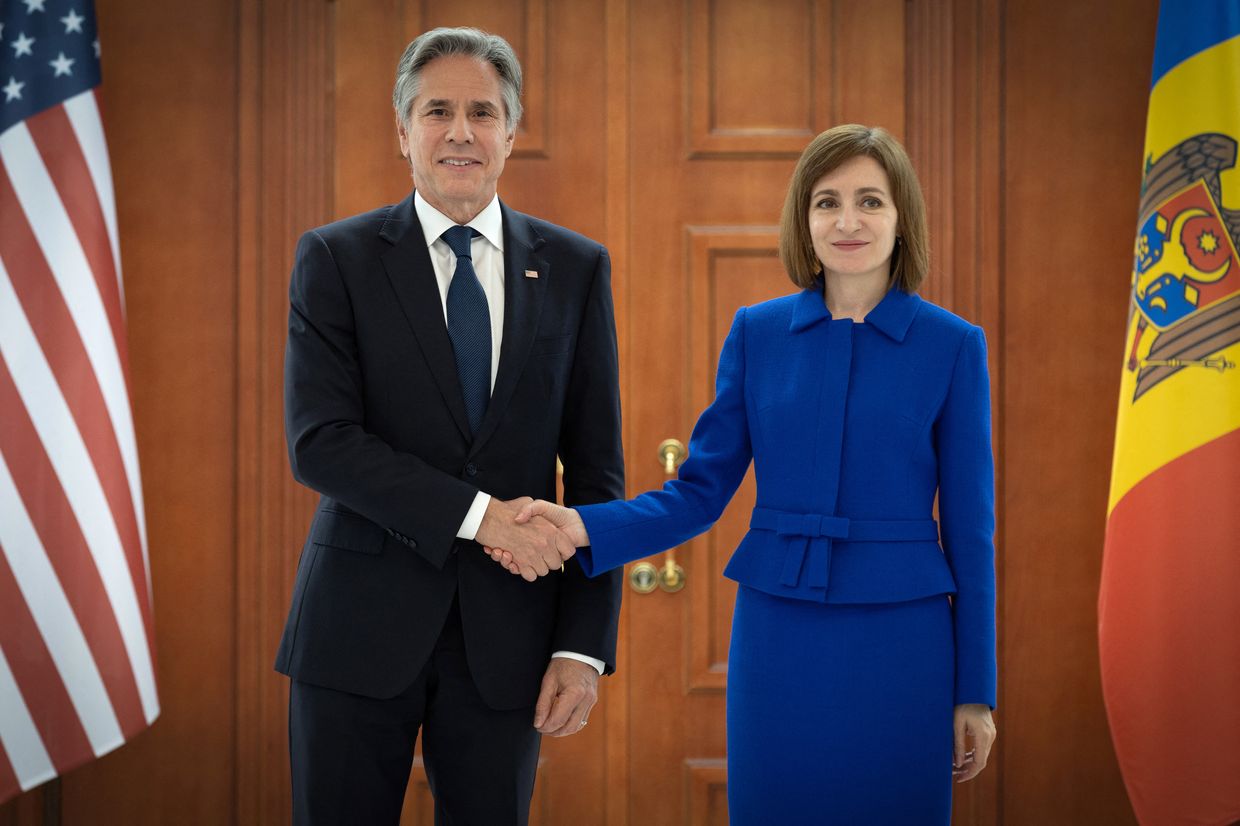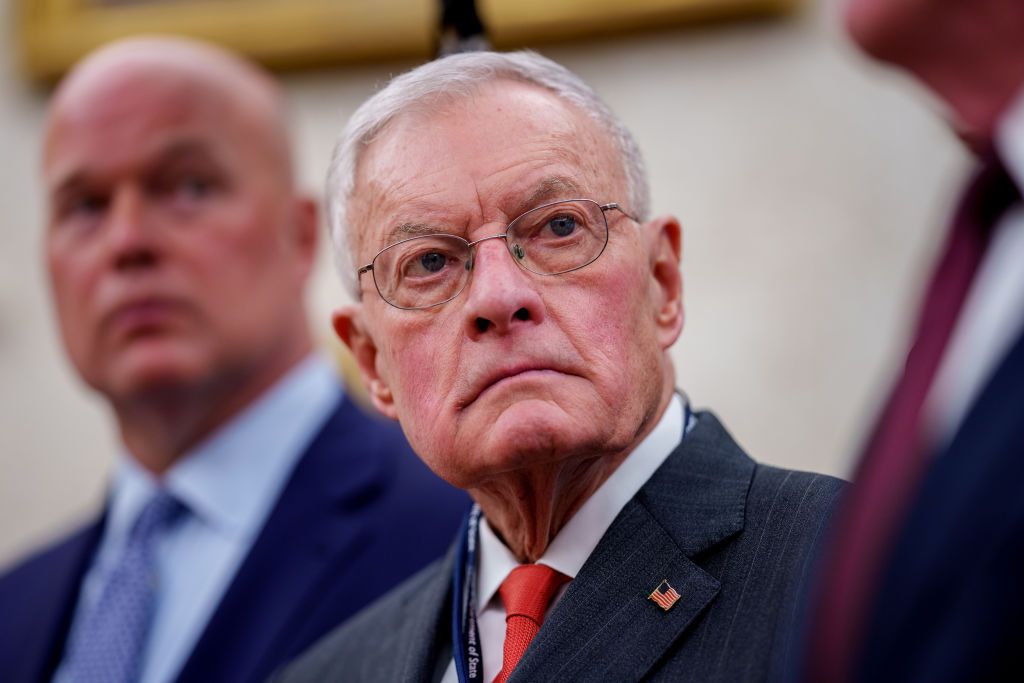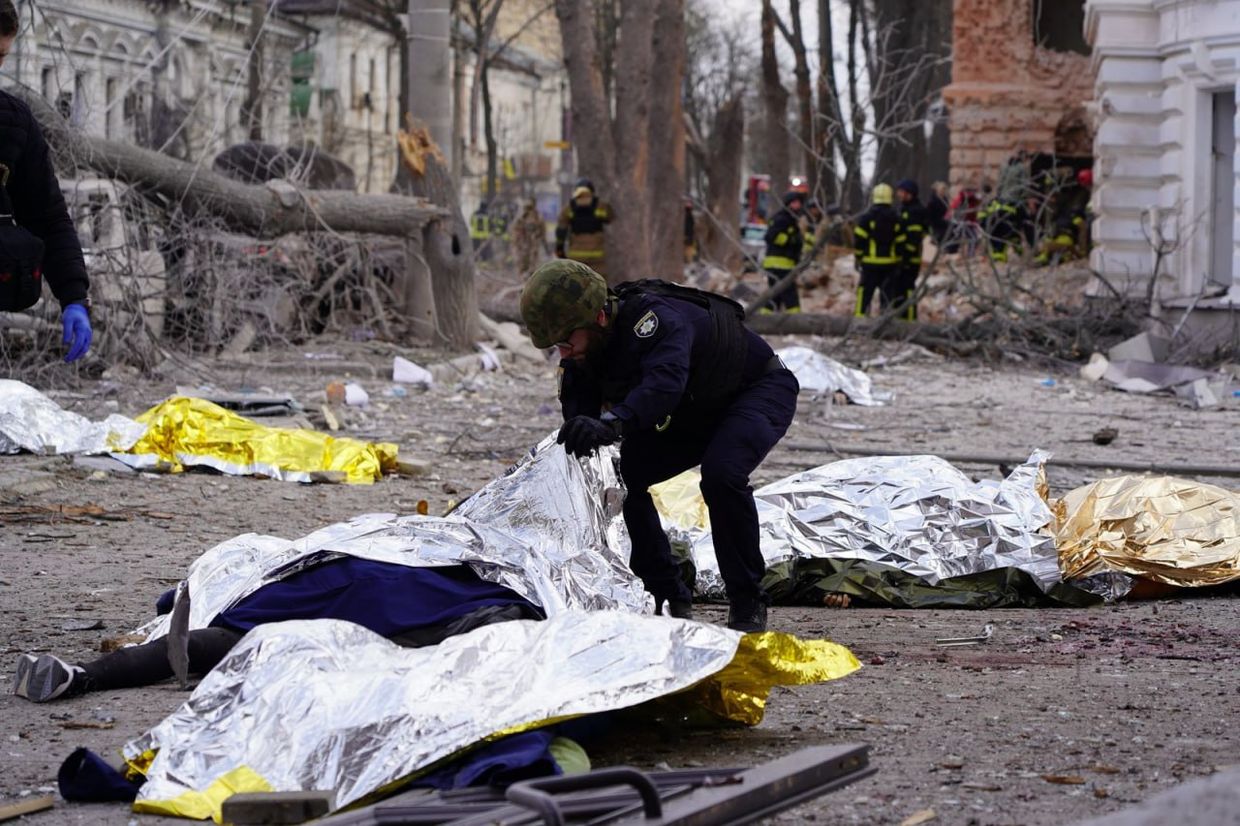U.S. Secretary of State Antony Blinken visited Moldova on May 29, where he met with President Maia Sandu and announced support worth $50 million to help Chisinau transition away from Russian energy dependence and further integrate with the EU, amid warnings of heightened hybrid threats from Russia.
This support will "bolster the ability of Moldovans to resist Russian interference, to hold free and fair elections, to continue down the path to the European Union and Western integration, to create more economic opportunity," Blinken said.
Sandu, a pro-European and pro-Ukrainian politician, has been president since 2020 but faces reelection and a referendum on Moldova's accession to the EU in October.
The EU agreed to start accession talks with Moldova and Ukraine at the end of 2023.
According to Blinken, the U.S. has provided Moldova with $774 million since February 2022 to help strengthen Moldovan institutions, resist Russian disinformation, and defend against hybrid attacks, including supporting a cyber security academy.
The U.S. and Moldova will also soon conclude negotiations for a new embassy compound in Chisinau, which "both symbolically and practically reflects the depth of our relationship," Blinken said.
Tensions between Moscow and Chisinau have been mounting since the start of the full-scale invasion of Ukraine amid fears that the war may spill into Moldova via Transnistria, an unrecognized breakaway territory that has illegally hosted Russian troops since 1991.

Moldovan officials have repeatedly accused Russia of election interference and destabilization attempts, even of allegedly fomenting an attempted coup, since February 2022.
Blinken pointed to the "extraordinary resilience from Moldova's leadership and especially from its people" in the face of "bullying from Russia, of interference, efforts to spread misinformation, disinformation, weaponizing corruption," and "manufacturing anti-government protests."
Ned Price, deputy to the U.S. representative to the U.N., told reporters in April that the U.S. is deepening cooperation with the Moldovan government in light of the threat of Russia's "well-rehearsed set of tactics."
Moldova has also long been dependent on Russian energy, but is now shifting to enhance connectivity with Europe and increase the use of renewables, Blinken said.
Sandu said that the U.S. provided assistance worth $80 million in the first winter of the full-scale invasion, which allowed the Moldovan government to compensate for the rising costs of energy bills.
According to Blinken, the U.S. has provided Moldova with "about $110 million in direct budget support to help compensate" for higher electricity prices over the last two years, which have been driven by Russia's invasion of Ukraine and attacks on Ukrainian energy infrastructure.
"We will also be dedicating $85 million – part of the $300 million USAID effort to support energy infrastructure – to help you enhance things like battery storage, as well as the high voltage transmission lines that we've already dedicated some funds to," Blinken said.
Sandu thanked Blinken for the "very strong sign of support for our country as well as for the path of peace, democracy, and prosperity that we have chosen."
The visit to Moldova follows Blinken's two-day visit to Ukraine earlier in May.














